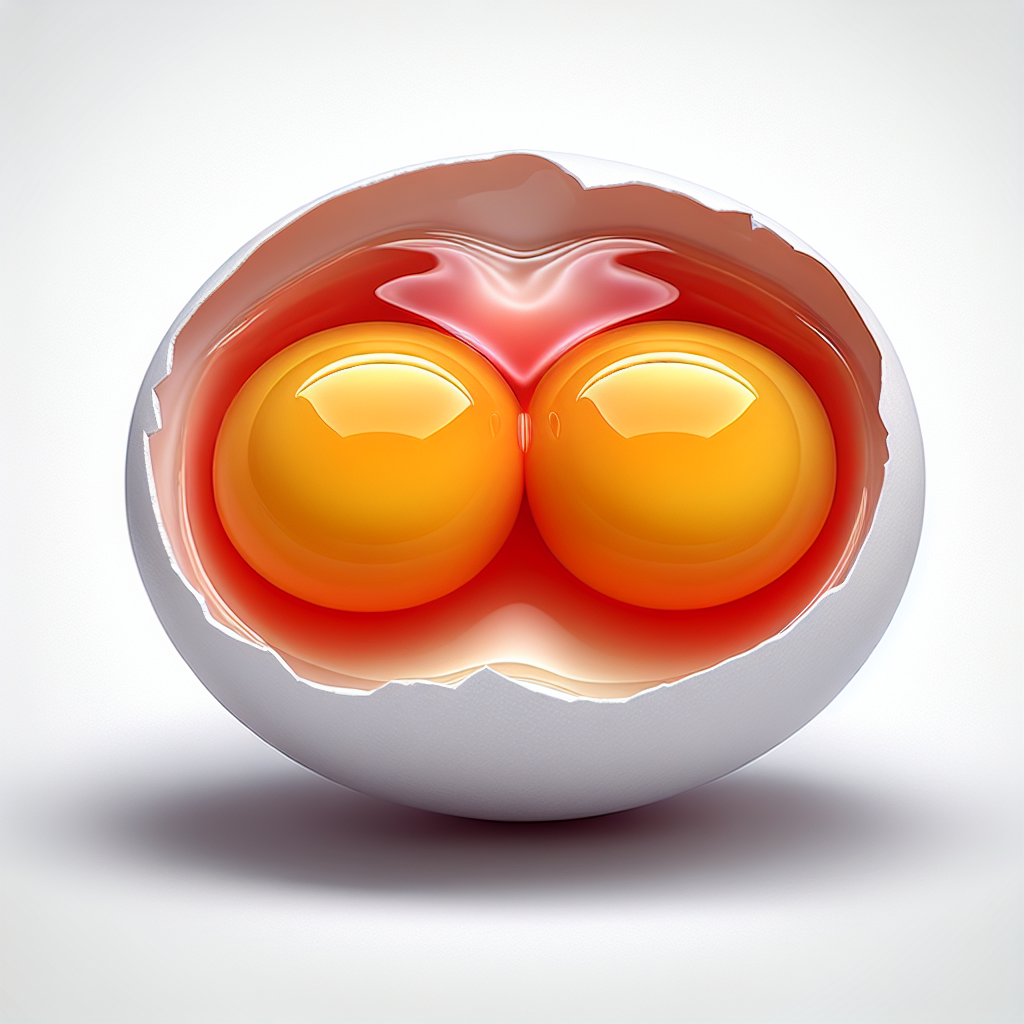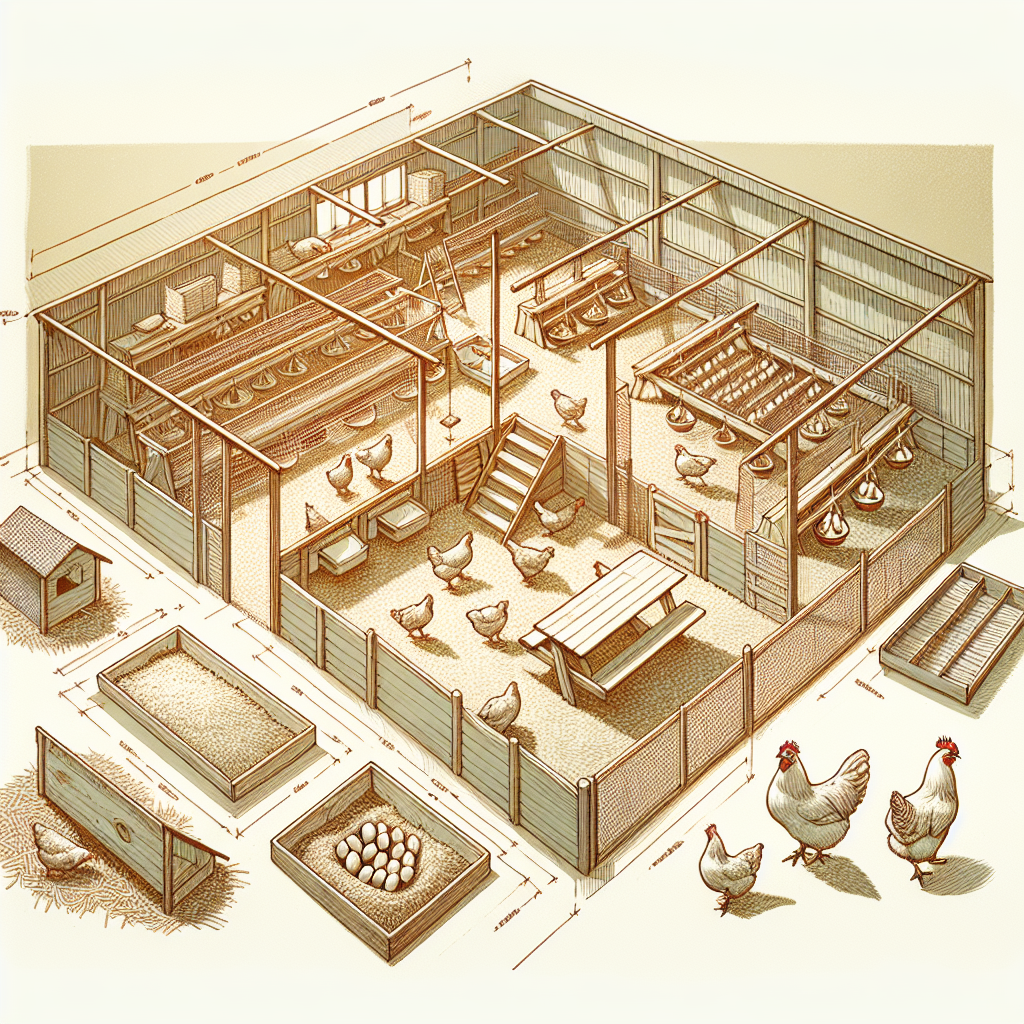Are you an avid chicken enthusiast whose dream is to have a constant supply of fresh eggs throughout the year? If so, you’re not alone! Many poultry keepers often wonder how they can maintain consistent egg production, even during the cold winter months when hens tend to decrease their laying frequency. In this article, we will explore some tips and techniques to help you fulfill your egg-laying dreams and ensure a bountiful supply of delicious eggs all year round. So, let’s embark on this journey and discover the secrets of promoting consistent egg production throughout the year!
Optimal Nutrition
Having a balanced diet is crucial for promoting consistent egg production throughout the year. As a poultry farmer, it is essential to provide your birds with the right nutrients to support their overall health and egg-laying capabilities. A balanced diet should include a mix of grains, proteins, fruits, and vegetables. Providing a diverse range of feed options ensures that your birds receive all the necessary vitamins and minerals they need for optimal performance.
Supplementing your birds’ diet with calcium is especially important for strong and healthy eggshells. Calcium deficiency can lead to thin or brittle shells, which can increase the risk of egg breakage and compromised egg quality. To avoid this, you can offer your birds calcium supplements, such as crushed oyster shells, in a separate feeder. This will enable them to consume the calcium as needed and ensure the production of sturdy and intact eggshells.
In addition to a balanced diet, it is crucial to ensure adequate protein intake for your birds. Protein is essential for egg production and plays a vital role in the development of reproductive organs in hens. Including protein-rich feed sources, such as soybean meal or fishmeal, in your birds’ diet can boost their protein intake and consequently improve their egg-laying capabilities.
Proper Lighting
Proper lighting is another essential factor in promoting consistent egg production throughout the year. Artificial lighting can be employed to regulate the duration of daylight exposure for your birds. This is particularly crucial during the winter months when natural daylight is limited.
Maintaining a consistent lighting schedule is key to ensure that your birds receive a specified number of light hours each day. Generally, providing 14 to 16 hours of light and 8 to 10 hours of darkness is recommended for optimal egg production. This consistent lighting schedule helps regulate your birds’ circadian rhythm and stimulates their reproductive systems, leading to more consistent egg production.
Manage Stress Levels
Creating a comfortable environment for your birds is essential for managing their stress levels and promoting consistent egg production. A comfortable environment includes factors like adequate housing space, proper ventilation, and maintaining clean living conditions.
Proper housing ensures that your birds have enough space to move around freely and exhibit natural behaviors. Overcrowding can lead to stress and aggression among birds, which can negatively impact their egg production. Providing enough perches, nesting boxes, and roosting areas allows your birds to feel secure and reduces their exposure to potential disturbances and predators.
Minimizing disturbances and predators is another vital aspect of managing stress levels in your flock. Loud noises, sudden movements, and the presence of predators can all cause stress and disrupt your birds’ routine. By implementing measures such as soundproofing the coop, installing predator-proof fencing, and keeping feeding areas secure, you can help create a calm and safe environment for your birds, reducing stress and ensuring consistent egg production.
Disease Prevention
Ensuring disease prevention measures are in place is crucial to maintain the overall health and well-being of your flock. Vaccinations and immunizations are key components of disease prevention. Consult with a poultry veterinarian to determine the most suitable vaccination schedule for your birds based on their age, breed, and potential disease risks.
Regular health check-ups are also essential to monitor your birds’ overall health and identify any potential health issues or diseases early on. Working closely with a poultry veterinarian allows for timely intervention and appropriate treatment if necessary. By establishing a proactive approach to disease prevention, you can minimize the risk of outbreaks and maintain consistent egg production throughout the year.
Genetic Selection
Breeding high-performing birds is an effective way to promote consistent egg production. Selecting birds with desirable traits, such as high egg-laying potential, strong immune systems, and good temperament, can help improve the overall performance of your flock.
Avoiding inbreeding is equally important in maintaining a healthy and productive flock. Inbreeding can lead to decreased fertility, weakened immune systems, and reduced egg production. To avoid these negative effects, introduce new genetic material into your flock regularly. This can be achieved by purchasing new birds from reputable breeders or by implementing a rotational breeding program.
By focusing on genetic selection and avoiding inbreeding, you can ensure that your flock maintains optimal egg-laying capabilities and consistent production levels throughout the year.
Managing Egg-Laying Cycles
Managing the egg-laying cycles of your birds is crucial for consistent egg production. Providing nest boxes allows hens to lay their eggs in a safe and secure environment. These boxes should be easily accessible, clean, and comfortable. Offering enough nest boxes based on the size of your flock will help prevent egg-laying in undesirable locations, such as the coop floor.
Collecting eggs promptly is essential to maintain egg quality and prevent any potential damage. Leaving eggs in the nest boxes for extended periods can increase the risk of breakages, which can lead to losses. Regularly gathering eggs ensures they remain intact and preserves their freshness, making them more appealing to consumers.
Water Supply
A clean and fresh water supply is vital for your birds’ overall health and well-being. Ensure that your birds have access to clean drinking water at all times. Regularly clean and refill water containers to prevent the buildup of algae, dirt, or bacteria that can potentially harm your flock.
Adequate water availability is equally important. Birds need water for digestion, temperature regulation, and egg production. If water is scarce or unavailable, your birds may become dehydrated, which can lead to a decrease in egg production. Make sure that water sources are easily accessible and have sufficient capacity to meet the hydration needs of your flock.
Temperature Regulation
Maintaining an optimal temperature in your poultry house is crucial for consistent egg production. Birds are sensitive to temperature extremes, and both overheating and cold stress can disrupt their reproductive systems. Ensure that the temperature in the poultry house is kept within a comfortable range, typically between 65°F (18°C) and 75°F (24°C).
Proper ventilation is essential to prevent overheating and ensure good air quality within the poultry house. Adequate airflow helps regulate temperature, removes excess moisture, and reduces the risk of respiratory diseases. It is important to monitor ventilation and make adjustments as needed to maintain a healthy and comfortable environment for your birds and promote consistent egg production.
Regular Egg Inspection
Regularly inspecting eggs for cracks or damage is crucial for maintaining egg quality and reducing the risk of spoilage. Cracked or damaged eggs can lead to bacterial contamination and affect the marketability of your eggs.
Monitoring egg quality involves visually examining each egg for any signs of damage. Cracked eggs should be discarded promptly to prevent any potential spread of bacteria. Additionally, monitoring factors such as shell quality, yolk color, and overall egg size can help you identify any potential issues or variations, enabling you to take appropriate measures to maintain consistent egg production.
Supplement with Oyster Shells
Supplementing your birds’ diet with oyster shells is a valuable practice for ensuring strong and durable eggshells. Oyster shells are an excellent source of calcium, which is essential for proper eggshell formation. Providing daily access to oyster shells in a separate feeder allows your birds to consume the calcium as needed.
Calcium deficiency can lead to thin, weak, or irregularly shaped eggshells, making them more prone to breakage. By offering oyster shells, you ensure that your birds have access to an additional source of calcium, helping them produce eggs with strong and sturdy shells. Regularly monitor the oyster shell supply to ensure it is always available and replenish it as needed.
In conclusion, promoting consistent egg production throughout the year requires careful attention to various factors. By providing your birds with optimal nutrition, proper lighting, a comfortable environment, disease prevention measures, genetic selection, effective egg-laying cycle management, sufficient water supply, appropriate temperature regulation, regular egg inspection, and calcium supplementation, you can support their reproductive systems and ensure a steady supply of high-quality eggs. Implementing these practices consistently and monitoring your flock’s health and performance will contribute to the success of your egg production operation.




